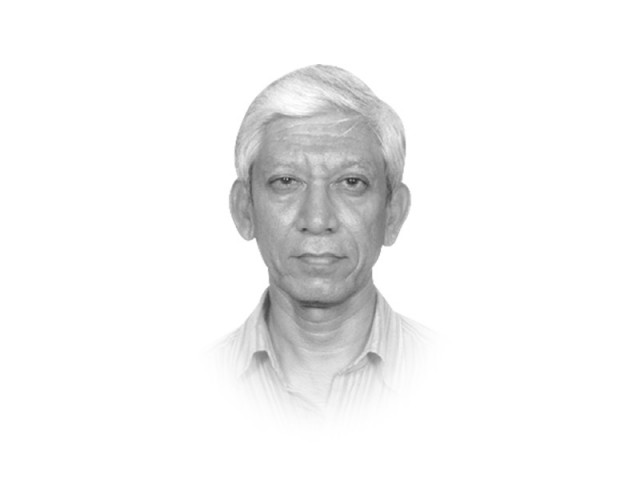Naya Qanoon censored
The intolerance bred during the Cold war has irrevocably injured the social, moral fabric of Pakistani society.

This whole paragraph is not to be found in the Gulzar version. The reason seems simple enough. Laughable as it may sound, the official history in Pakistan never credits the Indian National Congress with wanting — let alone struggling for — India’s freedom. The fact that India was ruled by foreigners might also have encouraged dangerous thinking in the minds of the students — who knows!
The socially and intellectually stifling environment which obtained early in the life of the newly-created state coincided with another factor: Pakistan’s political dependence on the United States, which itself was experiencing the worst kind of repression under McCarthyism. During the Cold War years, Pakistan openly sided against the Soviet Union and thus, ostensibly to counter the threat from the north, found a convenient excuse to muzzle political and social criticism of any kind. Over the long haul, this intolerance has irrevocably injured the social and moral fabric of Pakistani society in a number of ways.
Not much insight is needed to figure out why the following paragraph was considered unsuitable for students: He then went into a detailed description of the changes the new constitution was going to bring to India. “You just wait and see. Things are going to happen. You have my word, this Russian king is bound to show them his paces.” Ustad Mangu had heard many stories about the Communist system over the years. There were many things he liked about it, such as their new laws and even newer ideas. That was why he’d decided to link the king of Russia with the India Act. He was convinced that the changes being brought in on April 1 were a direct result of the influence of the Russian king.
Throughout the Cold War, the Communist Party had been banned and severely suppressed in Pakistan. The mere mention of its name was considered taboo by the authorities. The official attitude appears to have survived the disintegration of the Soviet Union.
For some years, the Red Shirt movement in Peshawar had been much in the news. To Ustad Mangu, this movement had something to do with “the king of Russia” and, naturally, with the new Government of India Act. There were also frequent reports of bomb blasts in various Indian cities. Whenever Ustad Mangu heard that so many had been caught for possessing explosives or so many were going to be tried by the government on treason charges, he interpreted it all as a curtain-raiser for the new constitution.
The reference to the Red Shirt movement — its local name being Surkh-posh Tehreek — led by Khan Abdul Ghaffar Khan of Khyber-Pakhtunkhwa, the erstwhile North West Frontier Province (NWFP), points to the political atmosphere of the province during the 1930s and later, as a result of which the All India Muslim League failed to win a majority in NWFP’s 1946 Provincial Assembly elections or to have NWFP support the demand for Pakistan. Nevertheless, NWFP was made a part of Pakistan based on the results of a referendum, the credentials of which remain doubtful to many. Early in the life of the new nation, the elected provincial government led by Abdul Ghaffar Khan’s brother, Dr Abdul Jabbar Khan (officially called ‘Dr Khan Sahib’) of the Congress was duly dismissed, reportedly on the orders of the first Governor General of Pakistan, Quaid-e-Azam Mohammad Ali Jinnah himself, and an unrepresentative government was imposed on the province under Khan Abdul Qayyum Khan of the Muslim League. The Red Shirt movement was banned and its workers were severely persecuted. No mention is made of the existence of any such movement in the official history of Pakistan. Manto has pointed to these later events in a few other places in his stories and essays. The Textbook Board seems to be faithfully following the same policy as was adopted by the country’s establishment in its early years.
Published in The Express Tribune, March 3rd, 2012.















COMMENTS
Comments are moderated and generally will be posted if they are on-topic and not abusive.
For more information, please see our Comments FAQ